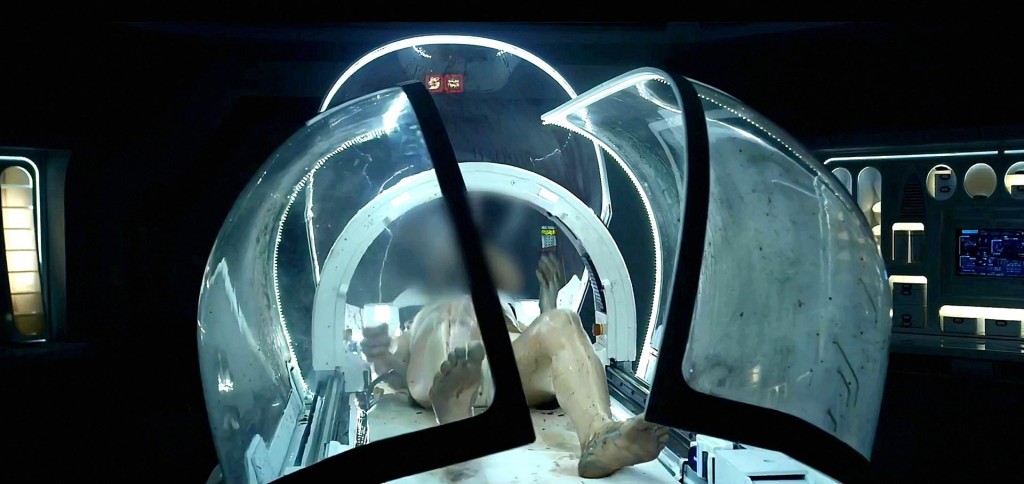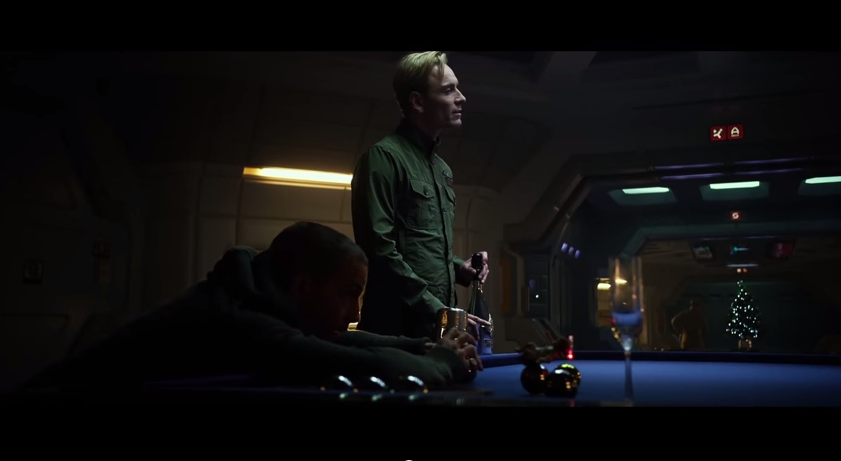Film is an entertainment medium that, by its very nature, tends to reward the viewer in rewatch. Sometimes movies even reveal to us how we’ve grown or changed since we last saw them. Our own Max Robinson reassesses old favorites, seasonal classics, and the occasional oddball lost under the couch in his monthly column, Stale Popcorn.
There’s been a great deal of discussion on my Twitter feed about what is and what isn’t a Christmas movie. The tit for tat over whether Die Hard is “the best Christmas movie” or even “a Christmas movie” is now seemingly a yearly tradition. The argument seems to extend to similar fare like Lethal Weapon, Gremlins, or even It’s A Wonderful Life (possibly the originator of this argument). Here’s where I plant my flag: These are all Christmas movies. They’re all, in some way, about Christmas, whether it’s a visual, a sense of place, or a feeling. Officer Al Powell singing “Let It Snow” and messing up the words, George Bailey running through Bedford Falls in the snow with renewed purpose.
In that spirit, I wanted to try and see if I could reach the outer most limit of what constitutes a Christmas film. I chose the weirdest, least Christmas-y Christmas movie I could think of: Ridley Scott’s black goo, love it or hate it sci-fi parable, Prometheus.
Although it’s only a few years old, I felt Prometheus was worth discussing here because while I’ve read quite a bit about the film, I haven’t seen much about one of its more unusual distinctions as a film broadly about Christmas. The film is a funhouse mirror version of not just many of the aesthetics of the holiday, but the reason for the season: the nativity story. On an authorial level for Scott, this is fitting: the film is a semi-prequel to his second film, Alien. Literally, it’s a movie about creation, especially his creation. Although the film’s connections are somewhat tenuous, the main binding thread between them is the bizarre “space jockey” first presented in Alien without any clear explanation or backstory. In Prometheus, the creature’s race is referred to as “Engineers” and under their bulky body suits they resembled living marble statues (complete with large, expressive eyes). Think Michelangelo’s “David,” or Precious Moments figurines from the blackest pit of hell.
Prometheus is probably the least subtle sci-fi movie of the last decade and the fringe benefit of that is that it really goes all out with its themes. Literal or figurative birth and the terrible power of creation are right at the forefront with its opening segment; a solitary, unclothed Engineer drinks a vial of…something, before violently decomposing and seemingly providing the source material for life on earth. The title refers to both the classical myth (the god Prometheus giving the gift of fire to an unworthy humanity), Mary Shelley’s Frankenstein, or The Modern Prometheus (wherein man creates unnatural new life and is destroyed by it), and to the film’s interstellar vessel of the same name.
Largely taking place between Christmas Day, 2093 and New Year’s Day, 2094, Prometheus finds its crew of scientists, artificial men, and other assorted Weyland Corporation employees spending the week between holidays on the surface of LV-223, a moon that may be home to this race of “Engineers.” When the crew, including Christian scientist Dr. Shaw (Noomi Rapace), her obnoxious asshole egotistical husband, Dr. Holloway (Logan Marshall-Green), and ship captain Janek (Idris Elba) wake up, it’s on Christmas Day. They’re literally reborn on Christmas, emerging from womb-like cryo-sleep pods (something that Scott also borrowed from Alien, a movie whose motherhood/womb themes are well documented).
Aesthetically, Prometheus immediately greets us with yuletide imagery. Janek takes to trimming a small Christmas tree shortly after waking up. Weyland corporate stooge Vickers (Charlize Theron) dismisses this as frivolity but it’s clearly an important ritual to him, one that takes priority over the crew’s initial briefing. On a certain level, you have to wonder if this is a visual callback to the Engineer’s own ritual at the film’s opening. Later, when we see Vicker’s lavish quarters, a snowy winter scene is projected on the back wall.
Given Prometheus‘ incredibly mixed critical reception, it’s sort of fitting that it’s a movie on some level about the disappointment that comes from seeking knowledge. Dr. Holloway is convinced that, upon investigating the planet, he’ll meet these mysterious progenitors of humanity. He’s giddy and impatient at the prospect, as seen in the exchange below:
Holloway: Captain, would you please tell the survey to suit up and meet us in the airlock.
Janek: There’s only six hours left of daylight. Why don’t you leave it till the morning.
Holloway: No, no, no. It’s Christmas, Captain, and I want to open my presents.
Holloway’s choice of words ends up especially fitting when, after finding essentially a massive tomb, he becomes angry and despondent in a manner reminiscent of a spoiled child on Christmas morning. As Holloway drunkenly lays his head against a pool table, a decorative baby Jesus can be seen next to his head. When David (Michael Fassbender), an android who Holloway has cruelly made a point of treating as less than human, appears in the room it’s with the gift of another bottle of champagne. While they discuss their respective creators, Janek’s blinking Christmas tree can be seen in the background.
As all this occurs, the characters are trapped within their ship by some kind of planetary storm, the closest LV-223 gets to snowfall. Asking Holloway “what he’d be willing to do” to get the answers he seeks, David gives him another “gift” as he essentially roofies him with the same black liquid we saw at the beginning of the film, recovered from their earlier expedition. David, a flawlessly beautiful artificial creation made to resemble its creator, is sort of a scientific answer to an angel. Just as God’s angels facilitated the birth of Christ, David is an agent of these higher powers (his “father” being the seemingly deceased Peter Weyland).
This, in turn, sets off the chain of events that leads to Dr. Shaw becoming pregnant with some sort of alien lifeform in a matter of hours. A perversion of immaculate conception. Shaw, a scientist who is resolute in her faith no matter what, finds herself the Mary to a brand new kind of life. Her immediate, natural instinct is to abort it from her body as we see below, in what has to be one of the best body horror scenes of the last decade.
Shaw’s birthing of the creature is wrong, unnatural. She rejects the screeching, totally inhuman monster once it’s removed from her and flees, totally denying the thing that just came from her womb. The entire sequence is a disgusting mockery of Madonna and Child, with science giving the formerly barren Shaw the ability to create “life.” As the creature rapidly matures, it resembles a rough approximation of the facehugger from Alien. It seemingly only exists to reproduce, eventually using an Engineer as an unwilling host for a creature that ends up looking vaguely like H.R. Geiger’s signature xenomorph monster. Ridley Scott creates Engineer (and Alien), Engineer creates humans, humans create David, David and humans inadvertantly create facehugger, facehugger births the Alien. Life begets life begets life in an unstoppable domino fall. Whatever your feelings on it, Prometheus is nevertheless an intriguing and oddly personal work for Scott. A Christmas movie that swaps out Rudolph and Frosty for the horror of parentage and progeny, the natural cycles of death and birth.
Have thoughts on this film or suggestions for future installments of Stale Popcorn? Post a comment below, or hit us up on Twitter or Facebook!





